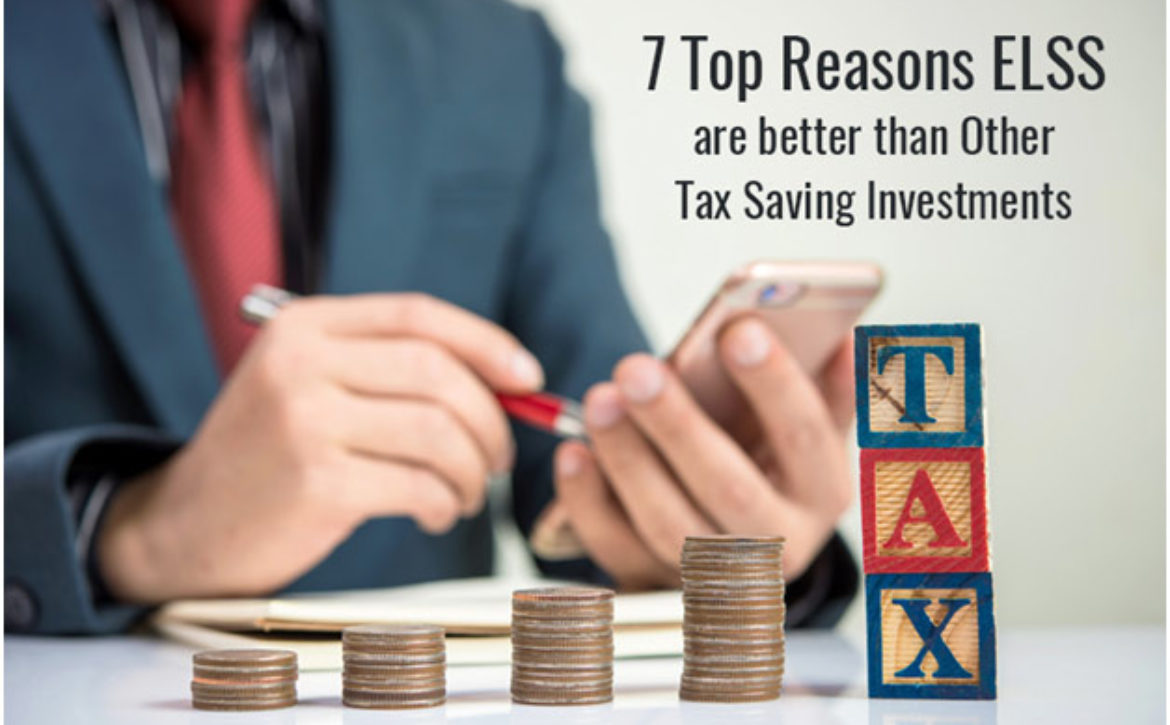When it comes to tax-saving investments in India, Equity Linked Saving Schemes (ELSS) have gained popularity among investors. ELSS funds are a type of equity mutual fund that not only offer potential capital appreciation but also provide tax benefits under section 80C of the Income Tax Act, 1961, making them a smart choice for individuals looking to optimise their tax planning. In this article, we will explore why adding ELSS to your tax-saving investments is a good idea and the advantages they offer.
- Potential for higher returns
ELSS invest primarily in equities, offering exposure to the stock market. Unlike traditional tax-saving options such as fixed deposits or Public Provident Fund (PPF), which have lower returns, ELSS has the potential for higher long-term returns. By investing in quality stocks and benefiting from market growth, ELSS has historically delivered competitive returns compared to other tax-saving instruments.
- Lock-in period and wealth creation
ELSS comes with a mandatory lock-in period of three years, which is the shortest among the various tax-saving options available. For instance, PPF comes with a lock-in period of 15 years, which is five times longer than that of ELSS. The silver lining to ELSS’s lock-in period is that it encourages long-term wealth creation and provides an opportunity for compounding. As equity investments tend to perform well over a more extended period, the three-year lock-in period allows investors to stay invested and potentially benefit from market upswings.
- Tax benefits under section 80C
ELSS investments are eligible for tax benefits under section 80C of the Income Tax Act. Investors can claim deductions of up to ₹1.5 lakh in a financial year for the amount invested in ELSS. This deduction reduces the taxable income, leading to lower tax liability. It not only helps in saving taxes but also encourages individuals to invest in equity markets and participate in wealth creation. Note that the tax benefit you can claim on ELSS investments will depend on the tax regime you are following – the new tax regime has done away with deductions like section 80C.
- Systematic investment plan option
ELSS funds offer the convenience of Systematic Investment Plans (SIPs). Investors can invest a fixed amount at regular intervals (monthly or quarterly) rather than making a lump sum investment. SIPs provide the benefit of rupee-cost averaging, where investors accumulate more units when prices are low and fewer units when prices are high. It helps mitigate the impact of market volatility and allows investors to benefit from market fluctuations.
- Transparency and professional management
ELSS funds are managed by professional fund managers who have expertise in equity market investments. These fund managers analyse market trends, conduct research, and make informed investment decisions. Investors benefit from their expertise, as the fund managers actively manage the portfolio to optimise returns. Additionally, ELSS funds provide transparency by regularly disclosing the portfolio holdings and performance, enabling investors to make informed decisions.
Final words
Adding ELSS to your tax-saving investments is a prudent decision. That’s because in addition to the tax-saving benefit under section 80C, ELSS funds have the potential for higher market-linked returns and the shortest lock-in period amongst tax-saving options.
